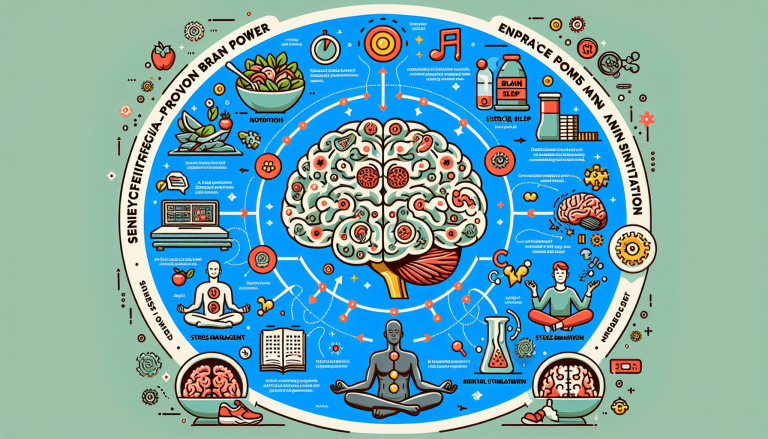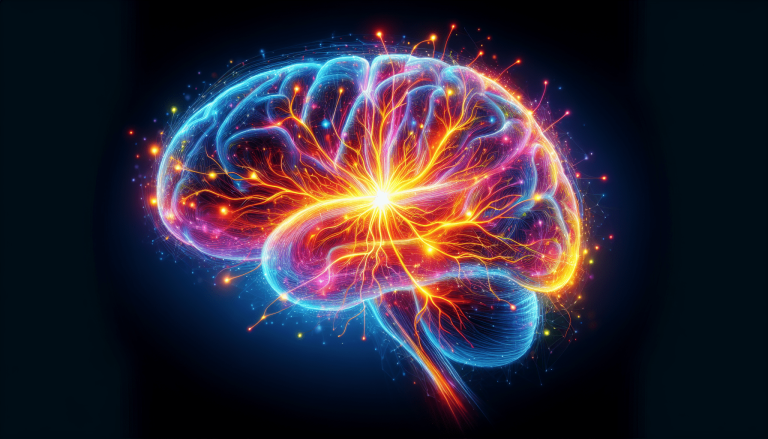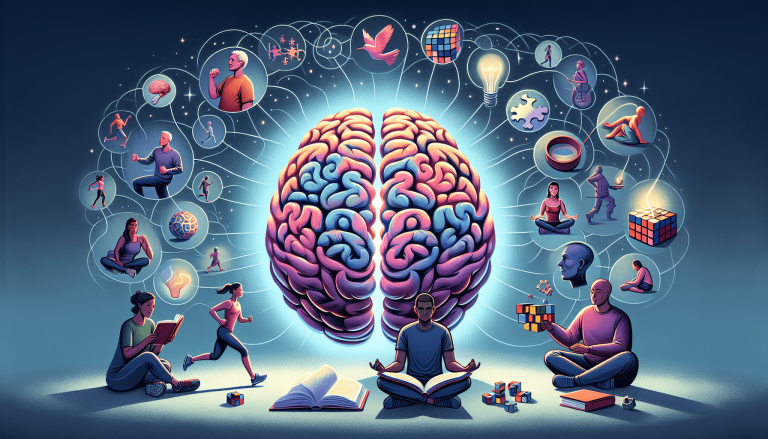Why Is My Brain So Slow?
Why Is My Brain So Slow?” is an insightful article that delves into the common frustration of feeling mentally sluggish. You’ll discover the various factors that can affect your cognitive speed, from sleep patterns to diet, stress, and even screen time. This friendly guide not only sheds light on why you might feel like your brain is dragging but also offers practical tips to boost your mental clarity and rejuvenate your thinking process. Whether you’re struggling with concentration at work or just feel out of sorts, this article is your go-to resource for understanding and addressing the slowdown inside your head.
Why Is My Brain So Slow?
Have you ever found yourself wondering, “Why is my brain so slow?” Whether it’s during a meeting, while studying, or even during a conversation, feeling like your brain is working at a snail’s pace can be incredibly frustrating. But don’t worry—you’re not alone in this experience. Many people go through periods where they feel mentally sluggish, and there are a multitude of reasons why it might happen.
In this article, we’ll delve into the various factors that could be contributing to your brain fog and sluggish thinking. By breaking down the science and offering some practical tips, we hope to give you a clearer understanding of what’s going on up there and how you can speed things up.
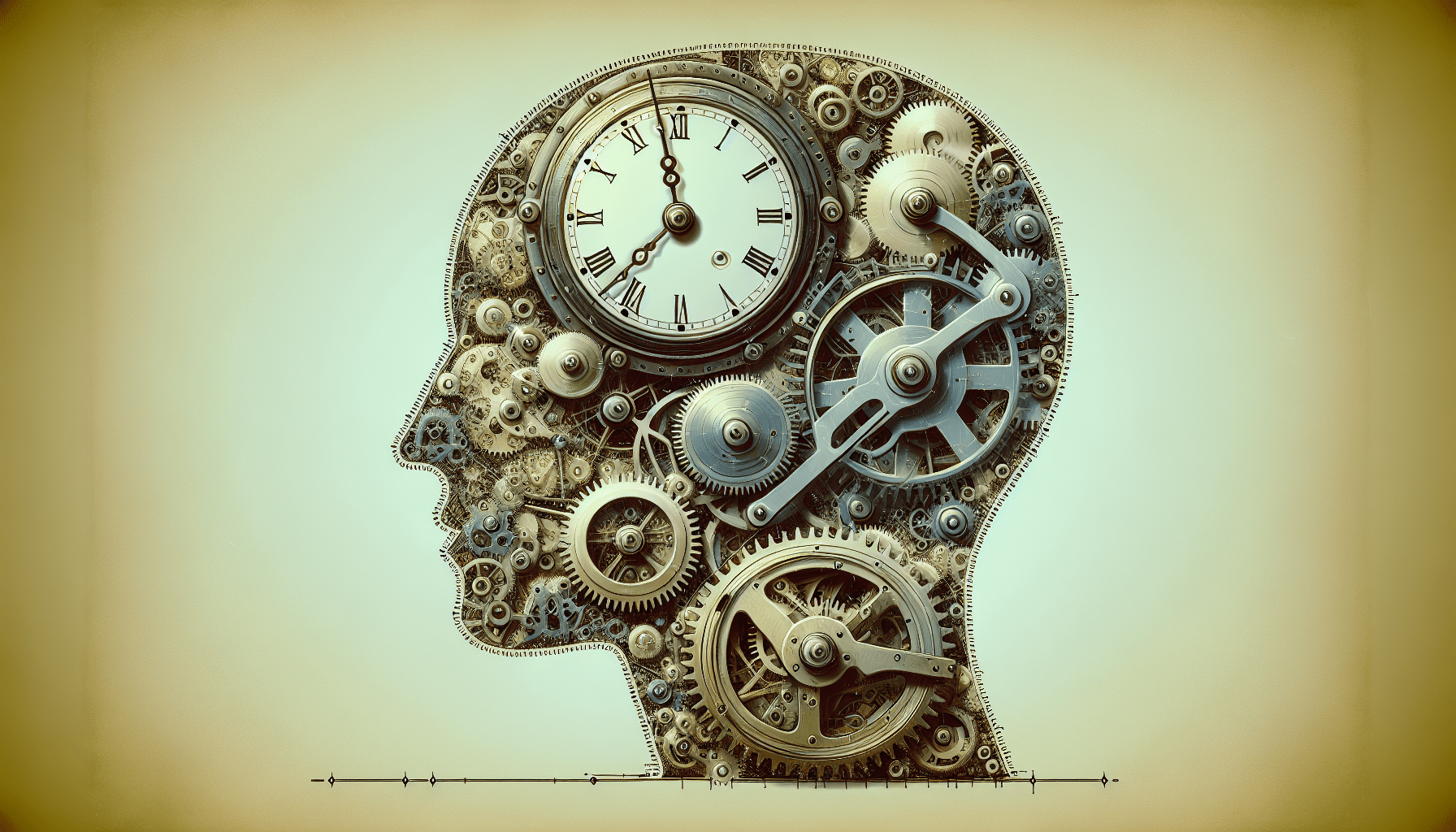
What Is Brain Fog?
Defining Brain Fog
Brain fog isn’t a medical term, but it is a conventional way to describe cognitive sluggishness. You might sense that your thoughts are murky, your focus is poor, and your memory isn’t as sharp. Essentially, it’s like your brain’s bandwidth has been reduced.
Common Symptoms
Brain fog manifests in various ways, and you may recognize some of these common symptoms:
| Symptom | Description |
|---|---|
| Poor Concentration | Difficulty focusing on tasks. |
| Memory Issues | Forgetting things more frequently than usual. |
| Mental Fatigue | Feeling mentally exhausted with minimal effort. |
| Slow Thinking | Taking longer to process information or make decisions. |
Identifying these symptoms can help you understand and articulate what you’re experiencing, which is the first step toward addressing it.
Causes of Brain Fog
Lack of Sleep
One of the primary culprits behind a sluggish brain is insufficient sleep. Quality sleep is vital for cognitive functions like memory, attention, and alertness. If you aren’t getting enough rest, your brain doesn’t get the chance to recharge, making it slow and inefficient the next day.
Poor Nutrition
Your brain needs the right nutrients to function at its best. A diet high in sugar and processed foods can lead to inflammation and slow you down mentally. Conversely, consuming brain-boosting foods rich in omega-3 fatty acids, antioxidants, and vitamins can improve cognitive function.
Stress and Anxiety
Chronic stress and anxiety can take a significant toll on your brain. Elevated levels of cortisol, the stress hormone, can interfere with cognitive processes and even lead to mental exhaustion. Learning effective stress management techniques can improve your mental clarity.
Hormonal Changes
Your hormones play a significant role in brain function. Hormonal imbalances, whether due to thyroid issues, menopause, or other conditions, can affect your cognitive capabilities. If you suspect hormonal changes are impacting you, it might be worthwhile to consult a healthcare provider.
Medications
Certain medications have side effects that can slow your thinking process. Antihistamines, antidepressants, and even blood pressure medications are known to affect cognitive functions. Discuss with your doctor if you think your medication might be the culprit.
Dehydration
Water isn’t just essential for physical health—it plays a crucial role in brain function as well. Dehydration can lead to brain tissue shrinkage, which impacts your cognitive abilities. Make sure you’re drinking enough water throughout the day.
Lack of Physical Activity
Exercise increases blood flow to the brain, which in turn enhances mental functions. A sedentary lifestyle can contribute to feelings of sluggishness. Incorporating regular physical activity into your routine can boost your brain power.
Medical Conditions
Several medical conditions can contribute to brain fog, including:
| Medical Condition | Impact on Brain |
|---|---|
| Chronic Fatigue Syndrome | Persistent tiredness affecting cognition. |
| Fibromyalgia | Muscle pain and fatigue that affects focus. |
| Multiple Sclerosis | Nerve damage leading to cognitive decline. |
| Depression | Mental health issues impacting cognitive functions. |
Improving Mental Clarity
Prioritize Sleep
Make quality sleep a priority. Aim for 7-9 hours of good sleep each night. Establish a bedtime routine that includes winding down activities like reading or taking a warm bath. Avoid screen time at least an hour before bed as the blue light emitted can interfere with your sleep cycle.
Eat a Balanced Diet
Incorporate foods rich in antioxidants, vitamins, and omega-3 fatty acids. Berries, nuts, fish, and leafy greens can all contribute to improved brain function. Avoid excessive sugar and processed foods that can lead to inflammation and cognitive dysfunction.
Manage Stress Effectively
Learning to manage stress can have a profound impact on your cognitive health. Techniques such as mindfulness meditation, deep-breathing exercises, and yoga can help lower cortisol levels. Regularly taking breaks and disconnecting from work can also help to alleviate stress.
Stay Hydrated
Keep a water bottle with you throughout the day and make a conscious effort to drink regularly. If you find drinking plain water boring, try adding slices of lemon, cucumber, or even a splash of fruit juice for flavor.
Exercise Regularly
Aim for at least 30 minutes of moderate exercise most days of the week. Activities can include walking, swimming, cycling, or even dancing. The key is to find something you enjoy so that you’re more likely to stick with it.
Review Your Medications
If you suspect that your medication is affecting your cognitive function, talk to your healthcare provider. There might be alternative medications or dosages that won’t impact your brain function as much.
Address Any Medical Conditions
If you have a medical condition that’s contributing to brain fog, make sure you’re following the treatment plan set by your healthcare provider. Proper management of diseases like depression, thyroid disorders, and chronic fatigue syndrome can help improve your mental clarity.
Cognitive Exercises and Techniques
Brain Training Games
There are various apps and games designed to boost cognitive function. Games that challenge your memory, attention, and problem-solving skills can be particularly effective. Some popular options include Lumosity, BrainHQ, and Elevate.
Mindfulness and Meditation
Practicing mindfulness and meditation can improve your focus and attention. Start with just a few minutes each day and gradually increase the time. Apps like Headspace and Calm offer guided meditations for beginners.
Learning New Skills
Engaging in activities that challenge your brain, such as learning a new language or musical instrument, can create new neural pathways and improve cognitive function. The key is to keep challenging yourself.
Journaling
Writing can help organize your thoughts and improve focus. Try journaling your thoughts and feelings each morning or evening to clear mental clutter and improve organization.
Memory Techniques
Utilize mnemonic devices to improve memory. Techniques like visualization, association, and the method of loci (a memory palace) can make retaining information easier.
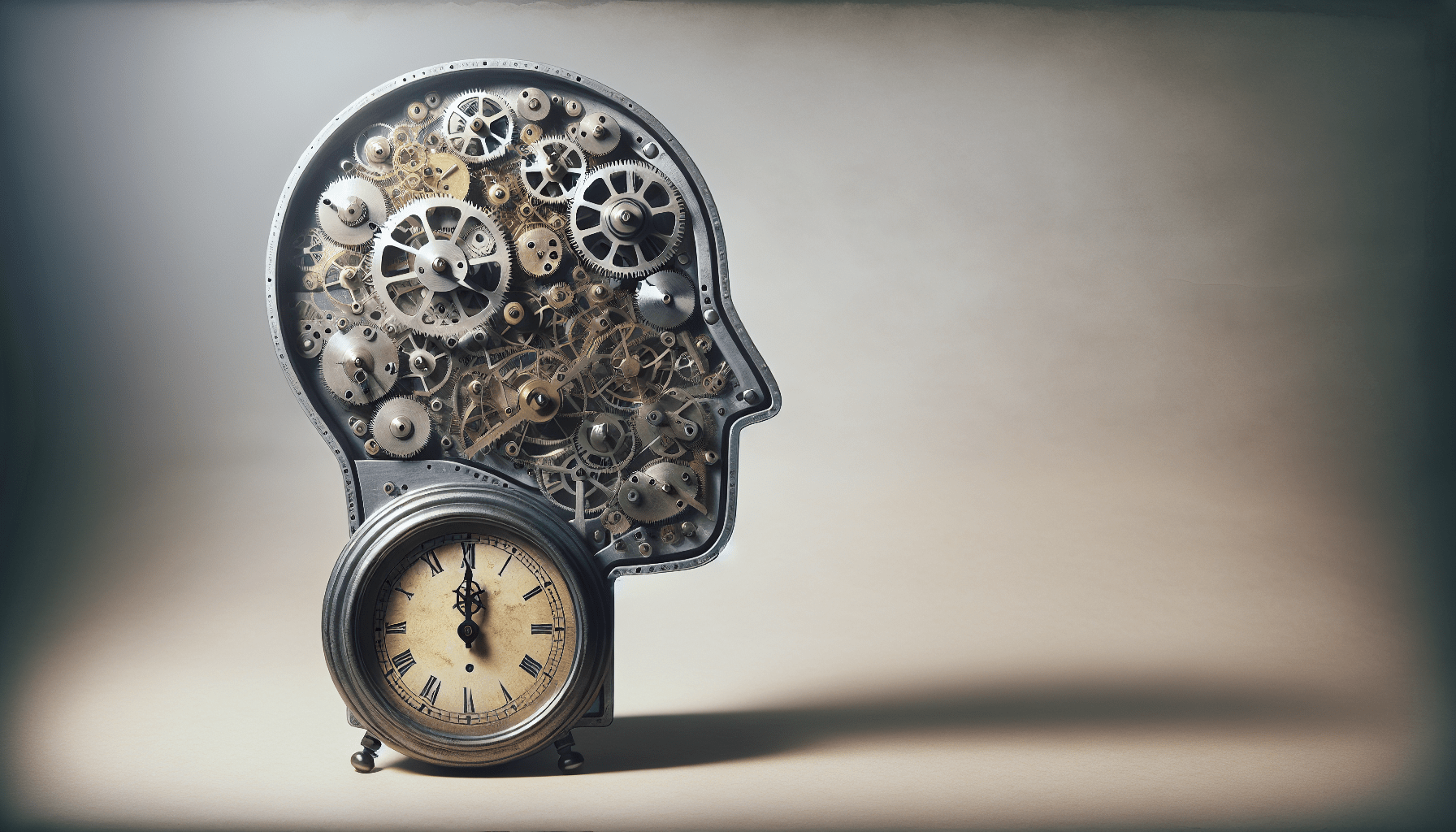
Supplements for Brain Health
Omega-3 Fatty Acids
Omega-3s, often found in fish oil supplements, are known to support brain health. They are linked to improving cognitive functions and reducing inflammation.
Vitamin D
Adequate levels of Vitamin D are essential for brain health. Sun exposure and supplements can help maintain optimal levels, especially during the winter months.
B Vitamins
B vitamins, particularly B6, B9 (folate), and B12, play a pivotal role in brain function. They help produce energy and maintain a healthy nervous system.
Ginkgo Biloba
This ancient supplement has been shown to improve cognitive function and memory, although more research is needed to fully understand its benefits.
Adopting a Holistic Approach
While supplements can help, they should never replace a balanced diet and healthy lifestyle. Always consult your healthcare provider before starting any new supplement regimen.
The Work Environment’s Impact
Ergonomics and Setup
Your work environment can significantly impact your cognitive function. Ensure that your workstation is ergonomically friendly—your chair, desk, and computer screen should all be arranged to minimize strain.
Minimize Distractions
Create a workspace that’s free from distractions. Noise-canceling headphones, a clean desk, and setting boundaries with colleagues can help you maintain focus.
Take Regular Breaks
The Pomodoro Technique, which involves working for 25 minutes and then taking a 5-minute break, can help maintain mental sharpness over longer periods. Don’t skip your breaks—your brain needs time to rest and recharge.
Workplace Wellness Programs
Many companies offer wellness programs that include activities like yoga classes, meditation sessions, and fitness challenges. Take advantage of these resources to enhance your mental and physical well-being.
Mental Health Support
Therapy and Counseling
Talking to a mental health professional can provide new strategies for managing stress, improving focus, and understanding any underlying issues. Cognitive Behavioral Therapy (CBT) and other forms of counseling can offer effective coping mechanisms.
Support Groups
Sometimes, sharing experiences and solutions with others who are facing similar challenges can be incredibly beneficial. Look for local or online support groups focused on brain health and cognitive challenges.
Medication
If you’ve tried lifestyle changes, cognitive exercises, and therapy without seeing improvement, it might be time to discuss medication with a healthcare provider. Antidepressants or other cognitive-enhancing medications might be appropriate in some cases.
Conclusion
Feeling like your brain is moving in slow motion can be distressing, but understanding the potential causes and solutions can make a world of difference. From prioritizing sleep and nutrition to engaging in cognitive exercises and seeking mental health support, there are numerous strategies you can employ to improve your mental clarity. Remember, it’s always a good idea to consult with healthcare professionals when making significant changes to your lifestyle or medication regimen.
Taking small, consistent steps toward better brain health will help you feel sharper, more focused, and more in control. So next time you catch yourself thinking, “Why is my brain so slow?” you’ll have a toolbox of strategies to help you address the issue. You’re not alone in this—everyone faces cognitive ups and downs, but with the right approach, you can get back to feeling like yourself again.
Additional Resources
This could break the brain function improvement industry in half… You may be skyrocketing your risk of dementia…and that’s why you need to know how easily you can reverse your brain function.
The mainstream media refuses to publicize this….
But today your world is about to change forever.
This amazing breakthrough is designed to repair mental acuity and give anyone who uses it the best mental alertness with improved memory and focus in no time.
Find out for yourself now…
Fortunately, your brain cells can regenerate if you use this unprecedented method…


